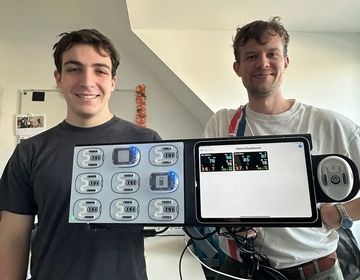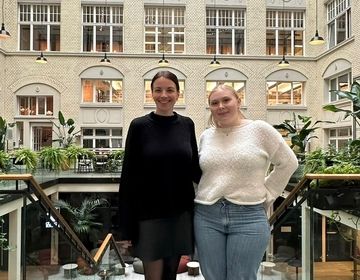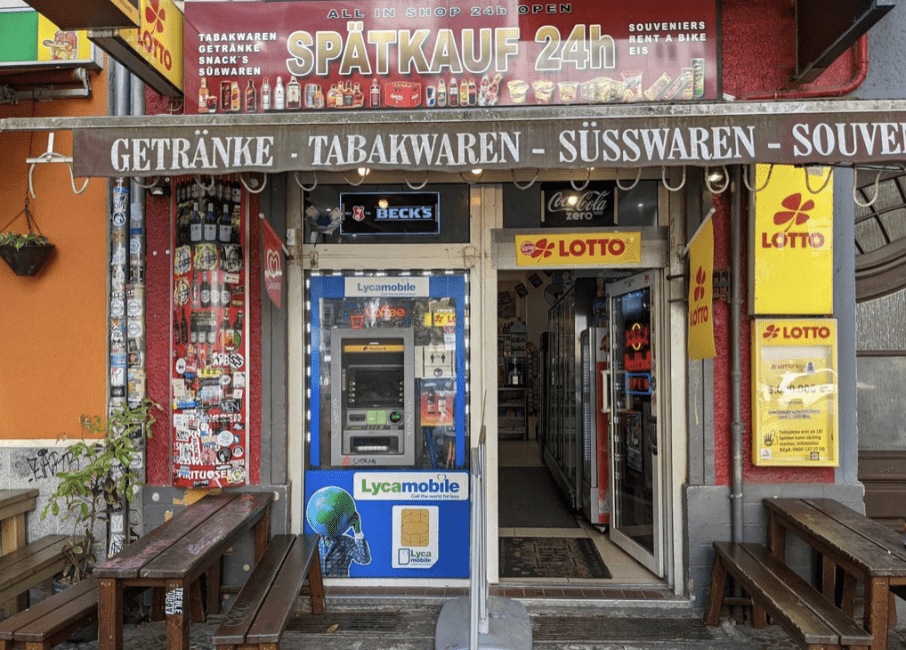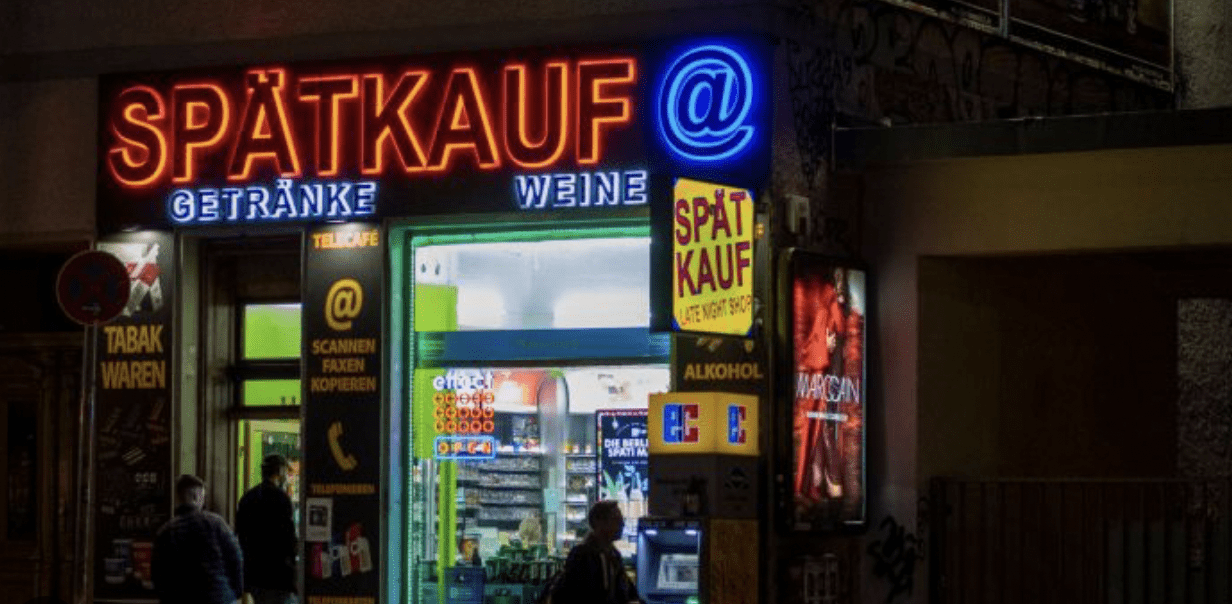The Späti-Chill: A Socio-Cultural Icon in Berlin
By: Grace Meisner
A club with no cover for entry, a bar without the wait for a bartender, a supermarket, meeting place, internet cafe, drugstore, post office, and gift shop all in one – accessible to all, open all hours of day. Throughout my time in Berlin, the Späti developed from a stranger, to my acquaintance, to a sort of home… a space that became the central hangout spot among my friends.
The term Späti, which comes from Spätkauf, (or “late buy”), is rooted in the concept of Spätverkaufsstellen – “late shops.” These late shops first emerged in the former East German communist state to serve late-night workers when their shifts ended. While regular shops had to strictly close at 18:00, Spätis had the flexibility to stay open several hours later during this time. Until the fall of the Berlin Wall in 1989, Spätis were entirely unique to East Germany. After reunification, however, Spätis began to pop up on the streets in all of Berlin. Today, there are over one thousand Spätis sprinkled throughout the city!
The awning of a Späti tends to bear some combination of the following: Tag und Nacht. Getränke. Spirituosen. Wein. Bier. Tabakwaren. Süßwaren. Lebensmittel. Scattered every few hundred meters, tucked between restaurants and shops, and marked by neon-lit “open” signs during most – if not all – hours of the day, Spätis stand as humble yet indispensable markers of Berlin’s nocturnal pulse. A peek into any Späti promises a similar sight: a cramped interior, with every bit of space organized meticulously to hold refrigerators full of sodas, beers, wines, hard liquor, and juices; shelves spanning from floor to ceiling with Haribo gummies, paprika chips, assorted chocolates, and a small selection of basic groceries and household essentials; and shelves of cigarettes and tobacco products behind the register. The Späti doesn’t clamor for attention of the passerby, and to the visitor, it may be easily overlooked. Only to the Berliner, familiar with the Späti-chill, does the Späti stand as a cultural hallmark of accessible, egalitarian pastime.
“Let’s Späti-chill tonight.” My roommate coined the term Späti-chill. From my understanding, Späti-chill can be both a noun and a verb. One can Späti-chill, which involves going to one’s local Späti, purchasing a beverage of one’s choice, and then plopping down on the wooden benches outside the Späti, socializing both with the group one came with, or with other Späti-chillers – people who partake in the Späti-chill. At first, I laughed at my roommate’s obsession with the Späti-chill. Why would we sit on the street when we could explore a cool new bar? What was the point of spending a precious night out in Berlin – the clubbing capital of the world – at the place I could go between classes to purchase salt and vinegar chips?
I gave her wish to Späti-Chill a chance, and I was not disappointed. We chose the Spät-Shop next to our dorm as our destination, and I purchased the cheapest white wine I could find, while my roommate purchased a Pilsner. We took our beverages outside, and made the rickety wooden benches our home for the next few hours. Each table was equipped with multiple glass ashtrays, inviting passersby to slow down and take a seat.
In a society where we are constantly pressured to be on the go and minding our business, I realized that Späti breaks the confines of what is normal and expected. Instead of transactional interactions, the Späti is a place where customers can slow down, live in the moment, observe the happenings on the streets of Berlin, and make human connections across barriers. When I reflect on what I miss most about Berlin, I can’t help but think of the memories I’ve made sitting on rickety wooden benches while sipping cheap beer and wine.
Related Posts

Inside a Berlin MedTech Start-Up: Max Beach’s Role at UniWearables
Maxwell Beach and His Internship Experience at UniWearables We had the chance to talk with Maxwell Beach, one of our Internship students at CIEE Berlin this Fall Semester. Max is... keep reading

Internship Spotlight: Jordyn Forni at Fyrce Care
Meet Jordyn Forni, one of our Open Campus Fall 2025 students! Jordyn has been in Berlin since August, completing both Block I and II. During her time here, she interned at Fyrce Care, a Berlin-based startup and digital platform focused on fertility and reproductive awareness.

EAT, DRINK, EXPLORE: BERLIN
BEST FOOD TO EAT IN BERLIN One of Berlin’s most famous sweet treats took the world stage in 1963 when President John F. Kennedy declared, “Ich bin ein Berliner.” While... keep reading


